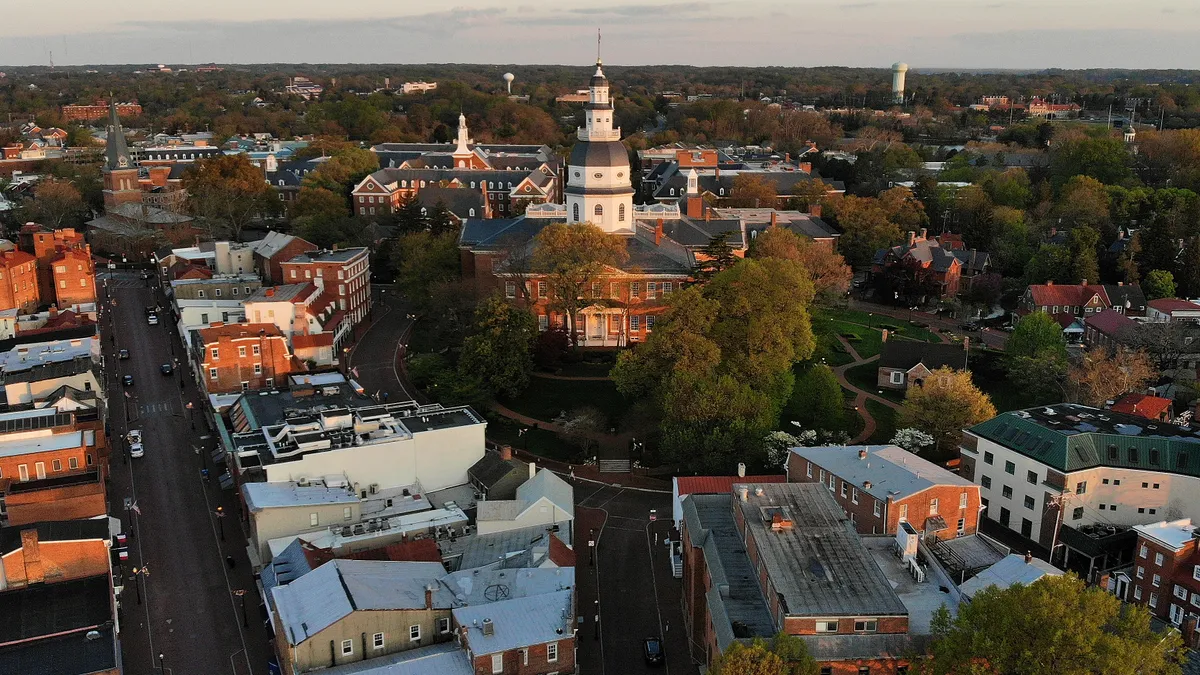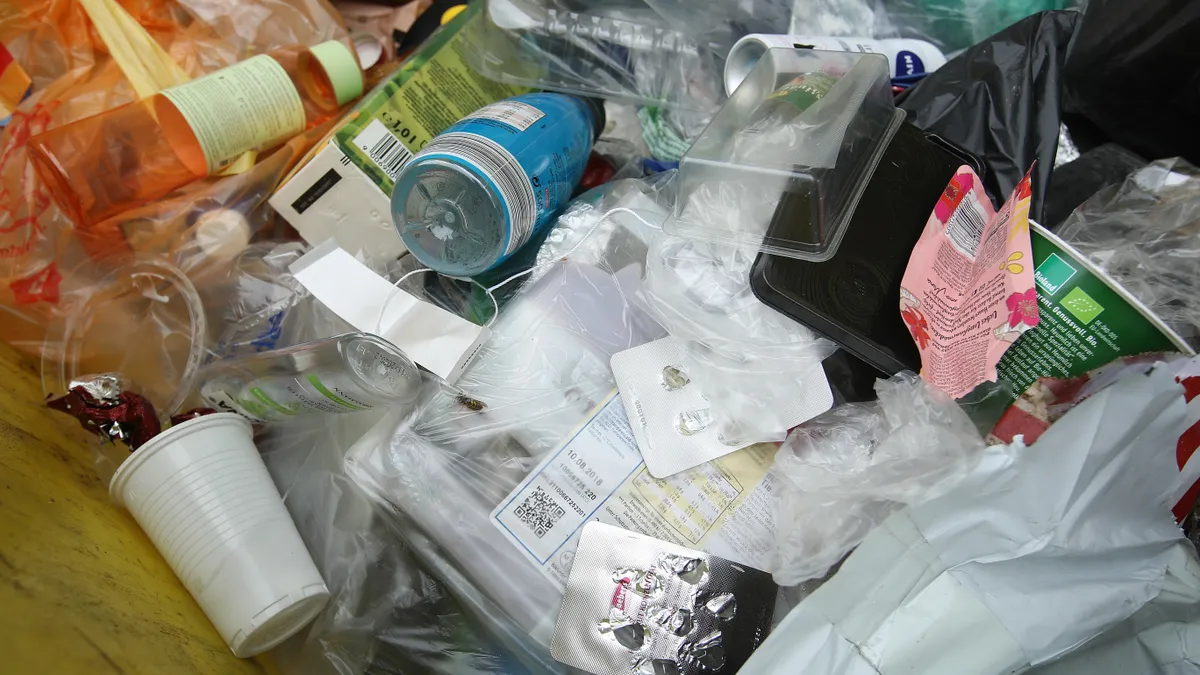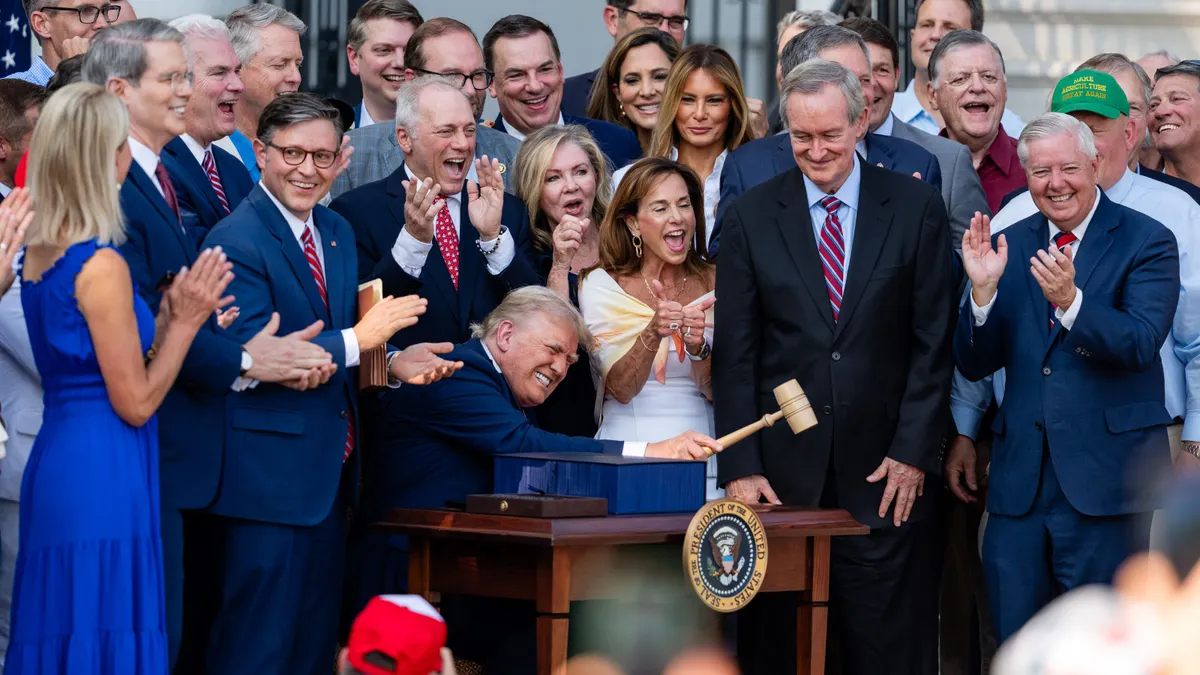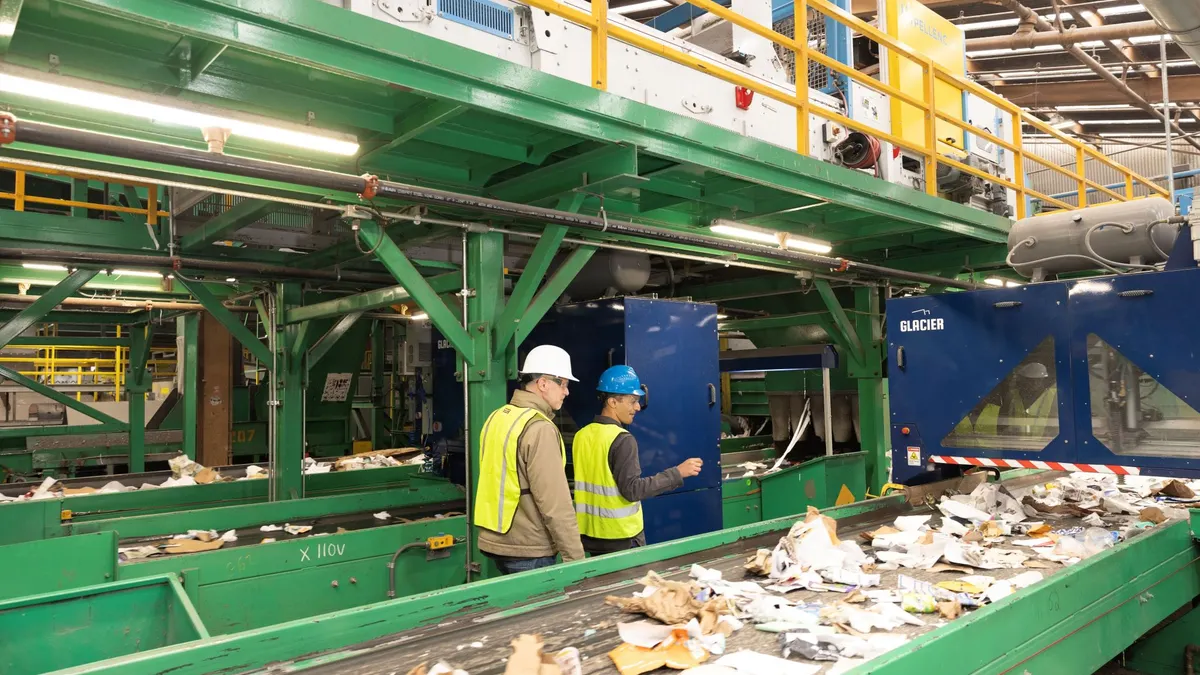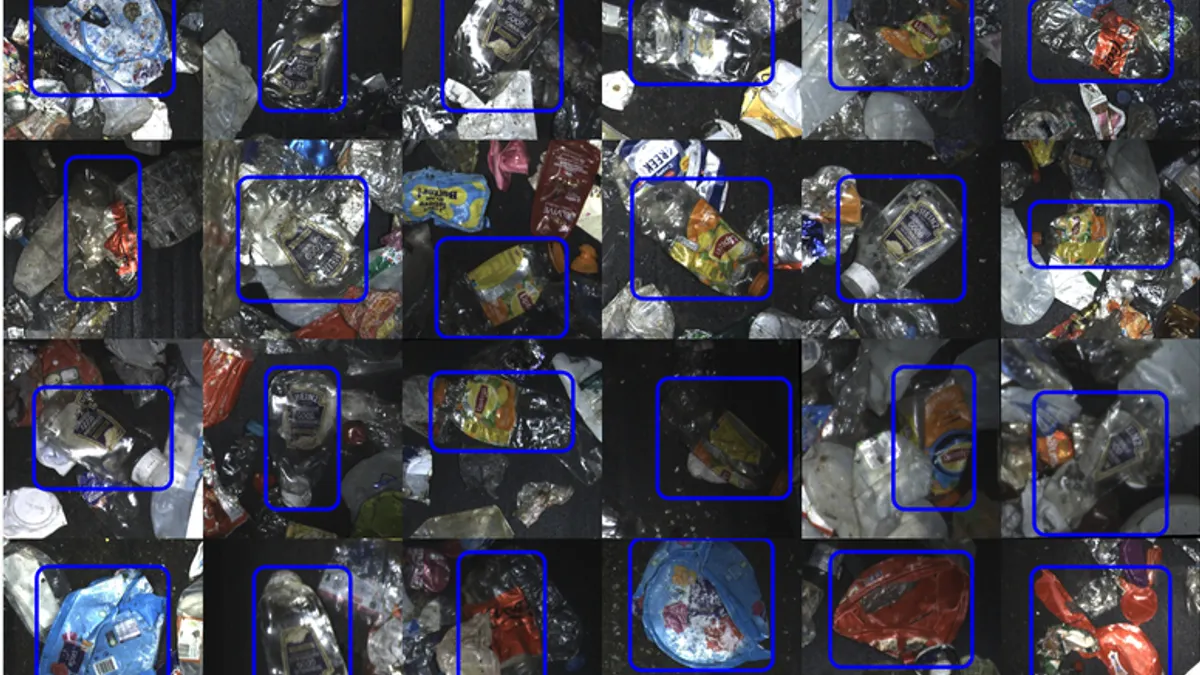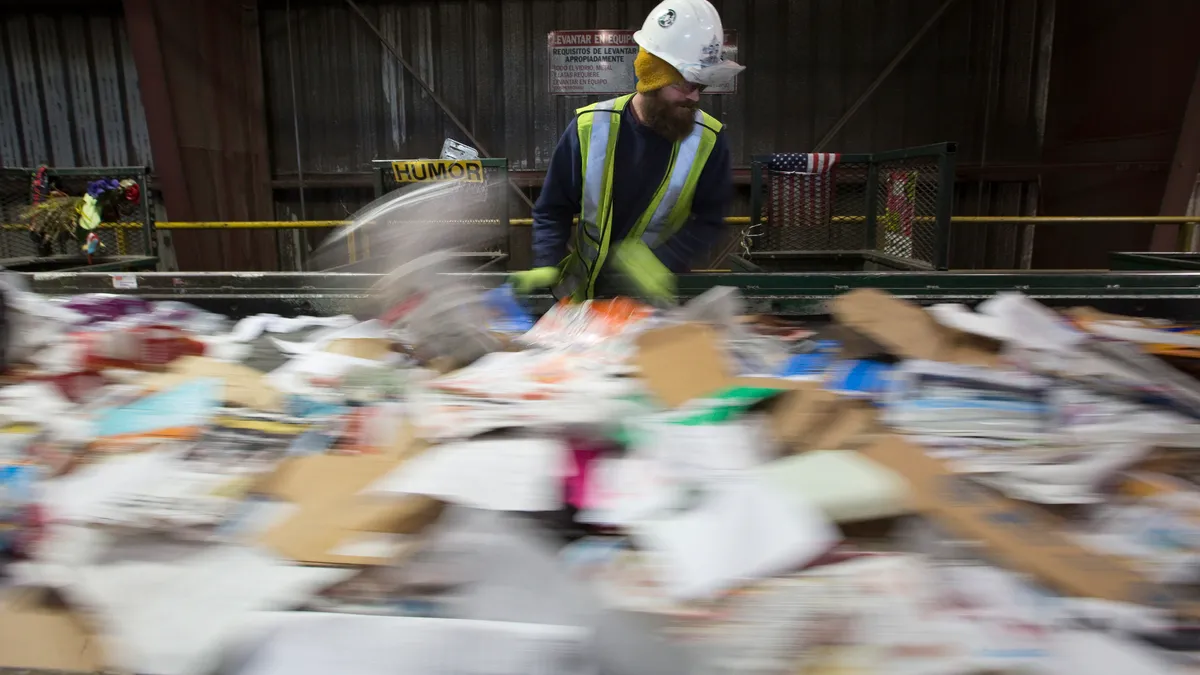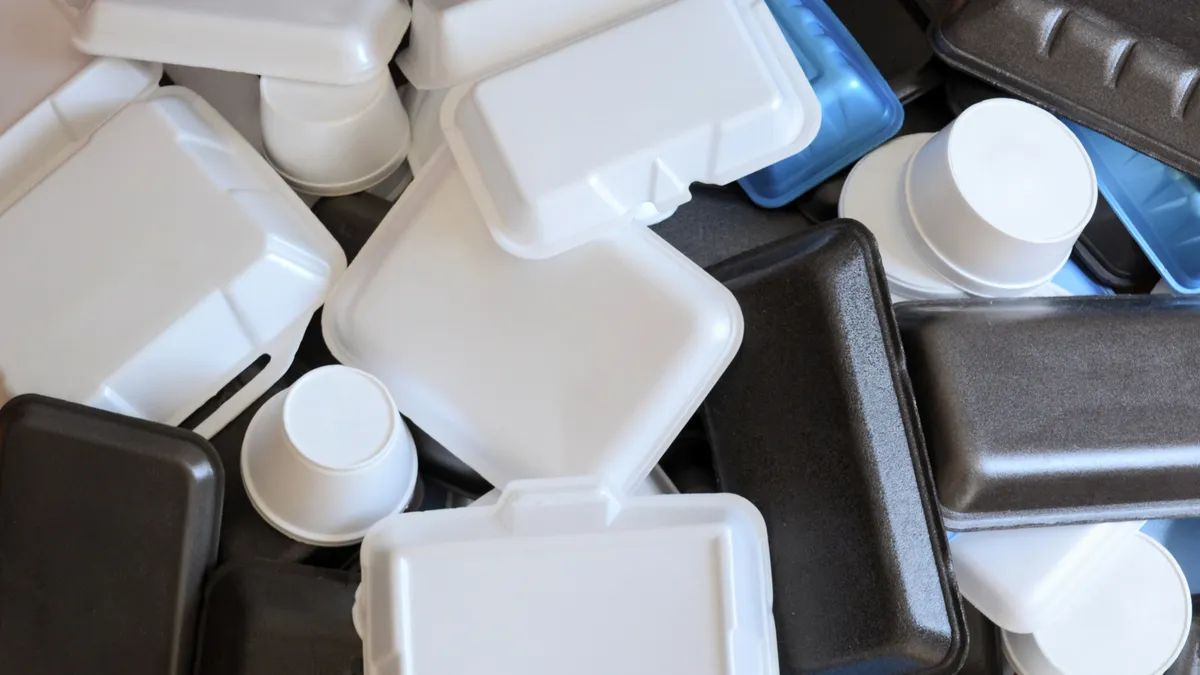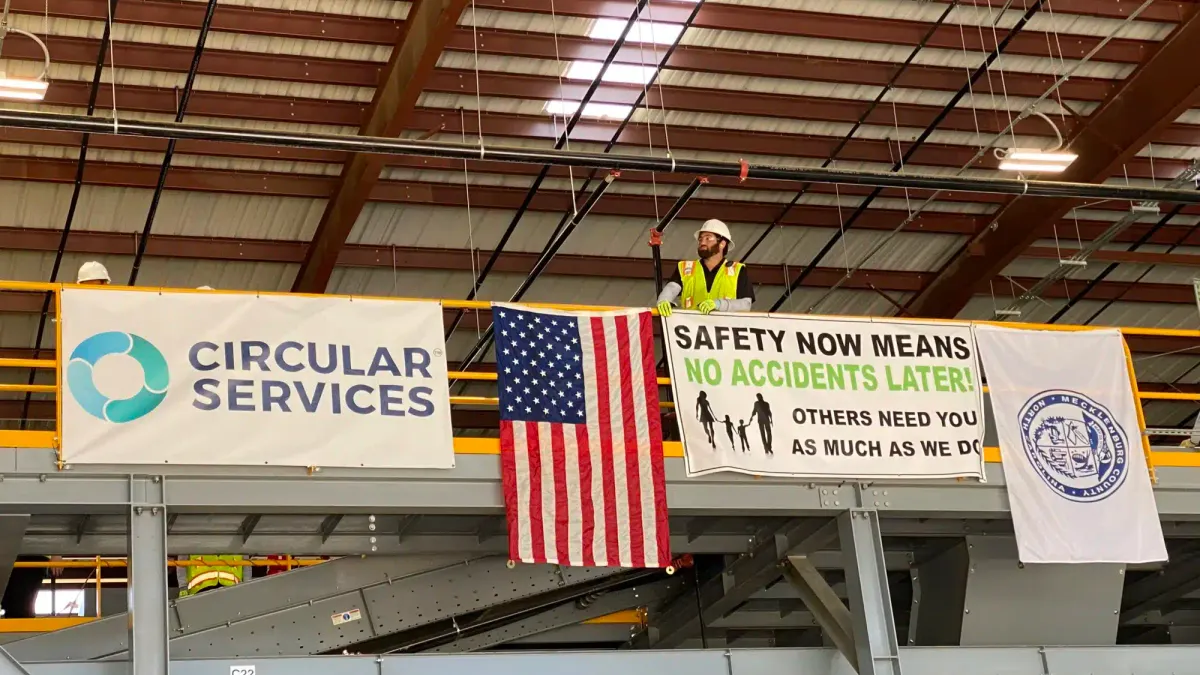Maryland Gov. Wes Moore has signed a series of bills with impacts for the waste and recycling industry.
Maryland’s legislative session ended in April. Yesterday, the governor finished signing bills meant to explore options for an EPR for packaging law, boost farm-based composting and compost markets, promote electric trucks, and determine if or how to close a state waste disposal authority. Here are the highlights of the state’s newest waste, recycling and compost laws:
Packaging EPR study bill
Maryland’s extended producer responsibility study law, SB 222, calls for a statewide needs assessment with details of how Maryland’s waste and recycling systems currently operate.
The version signed by Gov. Moore went through numerous changes that removed provisions establishing an actual EPR for packaging program, but proponents representing different stakeholder groups said Maryland must first have a clear picture of its recycling and waste management systems before trying to write detailed EPR rules.
Along with the detailed needs assessment, conducted by an independent consultant, the law also calls for an EPR advisory council meant to report to the governor by Dec. 1, 2024, with recommendations for a future EPR plan. The law also allows the Maryland Department of the Environment to approve a single producer responsibility organization.
On-farm composting permit exemption
HB 253, which will take effect in October, allows on-farm composting facilities to get an exemption from certain permitting requirements if the facility uses 10,000 square feet of area or less for active food scrap composting.
To be eligible for the exemption, farm facilities would only be able to compost certain materials, such as source-separated organics from residential curbside or drop-off programs, or organics from nonresidential preconsumer or postconsumer sources. Other acceptable materials include yard waste or organic material generated on site. Farms would need to keep detailed records and would not be able to compost items like animal carcasses.
The bill received broad support from environmental groups, local governments and county farm bureaus, which said farms are an important part of the state’s efforts to reduce food waste.
State government procurement requirements for compost
HB 586 requires the Maryland Green Purchasing Committee to write specifications for purchasing compost, mulch or other soil amendments made from certain recycled or organic material. State agencies that purchase such material will need to include these specifications in their solicitations.
MGPC specs will cover material made from municipal solid waste, food waste, yard waste or other recycled or organic materials, according to the law. State agencies will follow the specs for purchasing material as long as “the products are readily available and competitively priced, and if the quality is satisfactory for the intended purposes,” according to the law.
The law doesn’t set a purchasing minimum, but it mentions the Department of General Services’ goal is to “increase the percentage of landscaped area fertilized by compost each year.”
Proponents like Bioenergy Devco and the Maryland Recycling Network supported the law, saying the specs will help create meaningful market demand for compost, mulch and soil amendments, particularly within the state.
Clean Trucks Act
The Clean Trucks Act, SB 224, requires 40% to 75% of medium- and heavy-duty vehicles sold in Maryland to be electric by 2035. This will apply to vehicles with a 2027 model year and newer.
The state’s Department of the Environment must also assess the state’s grid capacity, charging station availability and any possible infrastructure hurdles. The law allows MDE to delay implementation if it doesn’t think the state is ready for the transition.
Maryland is one of six states that have aligned with a California law mandating an electric truck transition. The new law comes as the waste industry is balancing new fleet regulations with a limited supply of battery-electric trucks, with hopes that infrastructure and vehicle availability will ramp up in coming years.
Sunsetting the Northeast Maryland Waste Disposal Authority
The new law, HB 161, starts the process of sunsetting the Northeast Maryland Waste Disposal Authority. It calls for the state Department of Legislative Services to explore whether it should combine NMWDA’s existing operations into the nonprofit public corporation Maryland Environmental Service. Supporters see the legislation as part of the state’s reexamination of its waste management priorities.
The NMWDA mainly issued bonds and supported incinerator development such as a WIN Waste Innovations facility in Baltimore and a Covanta-operated facility in Montgomery County, along with a now-closed facility in Harford County. The active incinerators have drawn criticism from environmental justice advocates. NMWDA also helped finance landfill gas, recycling and compost projects.
Correction: This story has been updated to reflect that a Harford County facility is closed, while the Montgomery County facility is still operating.





